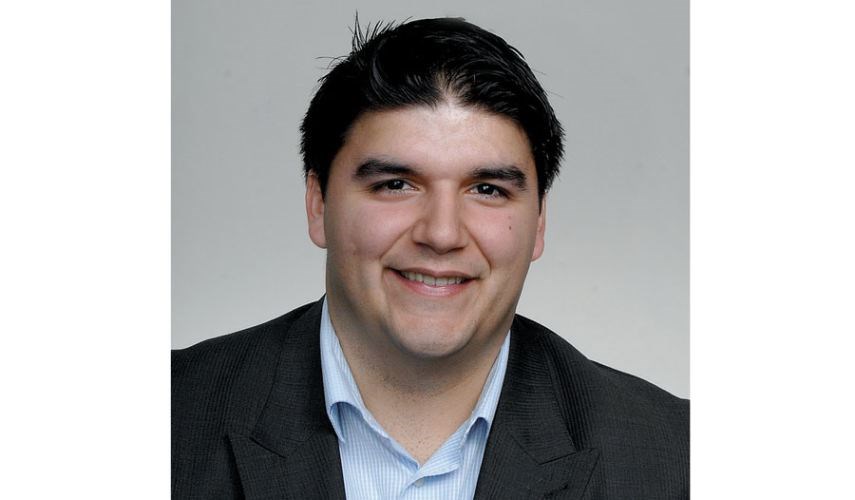As a columnist it's sometimes hard to express yourself. That sounds like a terrible joke, but I assure you it's the truth. This week is supposed to be episode four of the federal party analysis, and that would bring us to Tom Mulcair and the NDP. But try as I might to, I can't write my review in the same way as before and it's for one simple reason: I find the Dippers to be frustrating, which, after I explain why, will prove to be a compliment. If I haven't lost you already, let's begin.
The NDP was born out of a loose but heartfelt association of socialists, farmers, and labour who had grown increasingly upset at government graft, Western Canada's second class citizenship, and a world where even those who were working hard might never see any benefit.
I would argue that ever since the party's leadership and support began to head East, things have gone downhill in its philosophical and political make-up, as more concessions have been made to win urbanite voters who often cannot sympathize with their more rural kin, unless it be through creedal, abstract, and, ultimately, empty ideological terms.
Take for example the staunch NDP line on the long gun registry, and how they disciplined MP's who voted according to their rural constituents wholly justified desires on this issue. Or how the NDP is supposed to be concerned with Canadian labour's needs, but the emphasis on both environmental declarations and rhetoric that openly endorses a minority of aboriginal leader's ultimatums threatens to stymie even small projects all over this country.
Further to this, the NDP has in fact become a "politically correct" separatist voice for Quebec, by endorsing the ludicrous sovereigntist claim that "50%+1" in a referendum is enough for Quebec to negotiate separation - an idea that flies in the face of "protecting the little guy" as both Quebec's vulnerable and its minorities would find themselves at the mercy of an underfunded and intolerant government.
Then again, it's not all bad news. Reading through the policy book of the NDP, there are two redemptive sections: the policies regarding veterans and agriculture.
The policies regarding veterans are contained in the longest single section of the entire policy book, and it does go on to address many of the failings of the current and past governments in the treatment of our brave men and women, whether they be wounded physically or mentally, and the lack of attention also given to their spouses or dependents regarding their hard won pensions. All Canadians would be lucky to have these reforms implemented immediately.
On agriculture, minus the promise to keep supply management which only ensures Vancouverites will continue to smuggle milk and cheese home from Bellingham, the NDP show just a glimmer of their glory days by promising to seek food security. There's also some potentially powerful ideas for training young people to become farmers and working with provinces to secure more land for the purposes of agriculture. Again, ideas many Canadians would support.
But it must be said that neither of these convinces me to switch my vote, ultimately because I can't get rid of the bad taste in my mouth left by politically correct idealogues that have infested the NDP. And why anyone in the NDP leadership is feeding these radicals with promises that are undeliverable, even negligent, is beyond my comprehension.
Which brings us to the final beat of my analysis, assessing the leader. In short, anyone who has a modicum of self-respect and common sense knows that Blaikie should have beat Layton, just as Cullen should have beat Mulcair, if only to try and keep the NDP from becoming the bourgeoisie-socialist mess of politically correct hypocrites it so often embodies today.
But perhaps more importantly, the fact remains that Mulcair, is, in the minds of many fence sitting voters, a firebrand, which is a double edged sword. People like it when he puts Harper on his heels, and the PM has certainly deserved his punchy questions over issues like C-51 and the Duffy expense scandal. He seems like a fighter, and like Diefenbaker of old, is an exceptional opposition leader.
And yet the question remains that if Mulcair becomes PM in 2015, will he be able to keep his cool at G7 meetings, at the White House, in meetings with premiers, in cabinet even? This is not a cheap shot, but a legitimate concern, as Mulcair's passion both inside and outside the house - most notably when he asked an RCMP guard who stopped his speeding car "do you know who I am!?" - is exactly the kind of issue that voters pause to think about on election day.
There are even rumours that his short fuse is the very reason Mulcair was not welcomed into the fold of the other federal parties when he was looking to run federally in 2007. I do not begrudge his shopping around for political standing - even Churchill wasn't a Conservative all his life - but if these rumours are even remotely true, it is certainly quite telling.
In the end, the polls tell us that the NDP will have a good showing in October, regardless of the result. And because of the new seat allocations for parliament, there will even be seats up for grabs in the "true blue west" that have the potential of swinging: after Alberta, anything is possible I suppose.
But as I've mentioned here, it is my honest opinion that a great deal of Canadian voters will continue to be frustrated with the federal NDP so long as it tows party lines that they see as both obtuse and irrelevant. Many Canadians would be happy to see a return to the common sense of Tommy Douglas; Western Canadians still have many hopes pinned on the NDP of yesteryear, which they see as a party with much potential. It just needs to stop tripping itself.



